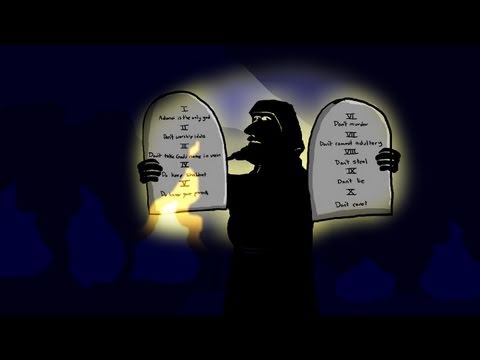The Torah reading today, Shevat 17, 5771 (January 22 2011) in the synagogue is called Yitro Exodus 18:1-20:23
The “10 commandments” found in today’s reading (Exodus 20:2–17) are also in Deuteronomy 5:6–21. Neither place has them listed with the ten clearly distinguished. So, there are several ways of dividing them into 10:

from Wikipedia
Those who make much of the ten commandments publicly – it is always interesting to see which version they mean…
The system of reading the Bible in three years on Saturdays reads part of the Sabbath reading each of the three years. You can find today’s portion and reflection here.
I have long had the suspicion that there may be connections between the Jewish calendar, lectionary, etc. and the Christian lectionary and feast days, etc. particularly the pre-Vatican II and possibly the Eastern versions. If anyone has any information, books, websites about this – please add that in the comments.




I have long had the suspicion that there may be connections between the Jewish calendar, lectionary, etc. and the Christian lectionary and feast days, etc.
Bosco, are you familiar with the work of the late Reverend Michael Douglas Goulder? He posited the idea that Gospel of Matthew’s arrangement provided corresponding readings for the Jewish Christians that were parallel to the Jewish synagogue readings of the Jewish lectionary used at the time of the early church. His first book on the subject was Midrash and Lection in Matthew SPCK, 1974.
His second book involved a similar, more expanded idea for Luke, The Evangelists Calendar, SPCK, 1978. And finally, Luke, a new paradigm, JSOT, 1989.
Yes, thanks, David. I have read Goulder and also his ideas mediated through Spong. I know that his position is not upheld by many other scholars, but I still think there is something to his theories. It is precisely something similar to this that I am wondering about in the point you are responding to – that there are (forgotten) connections between the Jewish calendar and lectionary and the traditional Christian lectionaries. The lectionary we now use, of course, has lost many of those connections if they were there.
Delightful presentation! G-D Cast will be a good site for getting to the heart of the Torah.
Thanks for sharing, Bosco!